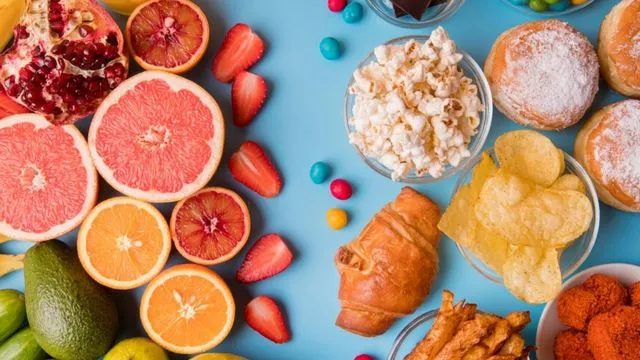- By Priyanka Munshi
- Fri, 17 May 2024 10:03 AM (IST)
- Source:JND
Acidic foods should be avoided for long-term health, as they can worsen a number of diseases. Acid reflux, tooth enamel erosion, and stomach pain can result from eating too many acidic foods, such as citrus fruits, tomatoes, and processed snacks. This can also eventually throw off the pH balance of the body, which could weaken bones and affect renal function.
Additionally, you may promote improved general health, lower your risk of developing chronic diseases, and guarantee your body performs at its best by eating a balanced diet that includes more alkaline foods like vegetables, nuts, and legumes.
What Is Acidity?
The body becomes acidic when the stomach overproduces acid, especially hydrochloric acid, which is essential for digestion. This can occur due to a number of factors, including eating too many acidic foods and drinks (such as coffee), spicy foods, and citrus fruits, as well as stress and sleep deprivation. Heartburn, indigestion, and acid reflux can result from the stomach producing excessive amounts of acid.
And If it is left unchecked, this extra acid can irritate the lining of the stomach and esophagus over time, potentially leading to more serious digestive problems. For your long-term health, we have outlined some reasons below why you shouldn't eat these acidic foods.
Which Foods Are the Most Acidic That You Should Avoid?
Did you know that persistent stomach acid can cause stomach acid to spill into the esophagus, resulting in symptoms of GERD and discomfort? Therefore, you have to stay away from things like fatty and fried foods.
Certain foods can exacerbate heartburn, including spicy foods, citrus fruits, tomato sauces, and vinegar.
Common causes of acid reflux and heartburn include alcohol, carbonated drinks, onions, peppermint, chocolate, and caffeine.
(Disclaimer: This article is for informational purposes only. It is not a substitute for professional advice, diagnosis or treatment.)

